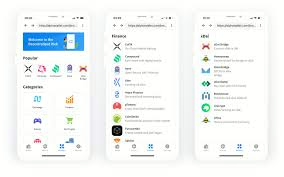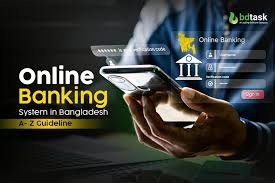Singapore’s digital banks have revolutionised the financial sector by offering a fresh and convenient banking experience for consumers. Unlike traditional banks, these digital solutions prioritise accessibility and user-friendly interfaces, attracting a diverse range of customers.

In 2020, the Monetary Authority of Singapore (MAS) took a significant step by issuing licenses to four key digital banks. Among them is GXS Bank, a joint venture between Grab and Singtel that integrates ride-hailing and telecommunications with banking services.
Another notable entrant is MariBank, owned by Sea Group. It aims to leverage its existing ecosystem to deliver personalised financial products. ANEXT Bank is part of China’s Ant Group. It aims to enhance seamless online banking experiences based on advanced technologies like AI and big data analytics.
Additionally, Green Link Digital Bank (GLDB) operates under a consortium that includes Greenland Financial, Linklogis Hong Kong, and Beijing Co-operative Equity Investment Fund Management. These innovative institutions reflect Singapore’s commitment to fostering a dynamic fintech environment while meeting consumers’ evolving needs.
These financial institutions provide a variety of banking solutions, ranging from online banking to digital asset management, specifically designed to meet market demands. This article will explore the developments within Singapore’s digital banks and their impact on the banking environment for small business owners.
Digital Banking for Entrepreneurs
Since the onset of COVID-19, small enterprises have increasingly depended on digital banking services tailored to support their success in today’s rapidly evolving digital marketplace. These banks deliver an extensive array of offerings, such as entirely online business accounts, swift approval for business loans, tools for managing expenses, and seamless integration with other software systems.

A significant advantage of utilising digital banks for small businesses is the ability to access comprehensive banking services entirely online, eliminating the need for visits to physical branches. Typically, the fundamental service provided by most digital banks includes business accounts that afford companies the flexibility and convenience necessary to manage their finances while on the move. Features like multi-currency capabilities and online invoicing and payment processing enhance this experience.
Moreover, Singapore’s digital banks facilitate rapid approval processes for business loans. These loans can be handled swiftly with minimal documentation required, focusing on equipping businesses with essential funds to foster growth and success. Some digital banks even present lower interest rates compared to traditional Working Capital Loans offered by conventional banks. For instance, ANEXT Bank—an affiliate of ANT Group—provides its ANEXT Business Loan with interest rates starting at just 8.8% per annum (EIR).
Expense management is another area where these digital banks genuinely shine. With functionalities like automated expense tracking and invoice management systems, businesses can effectively oversee their finances and maintain better control over cash flow.

Variations Among Singapore’s Four Digital Banks
GXS, Green Link, ANEXT, and Maribank are all digital banking institutions in Singapore that provide various financial services to individuals and businesses. Although they share the digital banking model, each has distinct characteristics and service offerings. A key distinction among these banks lies in their areas of focus. ANEXT caters specifically to modern small and medium-sized enterprises (SMEs), offering services such as current accounts and term loans, including revolving loans up to S$300,000. In contrast, Green Link Digital Bank targets environmentally conscious clients with revenues exceeding S$10 million, providing a more comprehensive array of products like deposit accounts, overdrafts, financing for payables and receivables, as well as receivable purchase financing. GXS currently does not offer SME lending or accounts; instead, it concentrates on consumer products tailored for a select customer base. Similarly, Maribank lacks SME solutions at this time; it provides personal banking options such as the Mari Savings Account with a 2.5% interest rate but restricts access to employees of its parent company, Sea and invite-only clients.

Comparing Digital Banks with Traditional Banks
An article from The Business Times indicates that these four digital banks have yet to transform the financial landscape as significantly as initially anticipated. Their influence on the market has been minimal, with most consumers not engaging with their services extensively. Singapore’s regulatory authorities aimed to prevent market disruption from the outset by requiring digital banks to offer unique value propositions while also addressing gaps in underserved market segments through innovative technologies. Furthermore, traditional banks have made considerable advancements in their digital services over the past two years.

Comparing Digital Banks to Traditional Banks
According to an article from The Business Times, the so-called fantastic four digital banks have yet to revolutionise the banking landscape as initially anticipated. Their influence on the market has been minimal, and average consumers need to be more heavily engaging with their services. From the outset, Singapore aimed to prevent any significant market upheaval, leading regulators to require that digital banks offer clear value propositions. Additionally, these banks were expected to cater to underserved segments of Singapore’s population while leveraging advanced technologies. Over the last two years, many traditional banks have also improved their digital services, with features like digital business accounts and affordable foreign exchange becoming increasingly sought after.

The Future of Digital Banking in Singapore
While the emergence of digital banking in Singapore will elevate standards across both traditional and neobanks within the sector, it is evident that this is merely the beginning. For digital banks to thrive, they must identify and leverage their unique strengths and develop tailored products that address specific needs within niche markets. This can be achieved by actively listening to their customers and creating offerings that provide real value. By doing so, digital banks can establish a distinctive and comprehensive suite of services that attract their target clientele effectively.

Maxthon
In the vast landscape of e-commerce and online interaction, the Maxthon Browser stands out as a reliable protector for its users, prioritising both security and dependability. It incorporates advanced encryption techniques and sophisticated anti-phishing tools to safeguard your personal and financial data against various online dangers. A standout feature of Maxthon is its powerful ad-blocking capability, which effectively eliminates disruptive ads, resulting in a more fluid and enjoyable browsing experience. Furthermore, Maxthon offers a comprehensive privacy mode designed to shield sensitive information from unwanted scrutiny. This protective barrier ensures that only authorised individuals can access your private data.

In an era of pervasive cyber threats, such protective measures have evolved from mere perks to essential requirements. As you explore the vastness of the Internet, each click poses a risk of exposing personal information to unseen entities. The demand for robust security solutions has never been greater. Activating Maxthon’s privacy mode allows users to navigate their online experiences with greater confidence. This feature not only prevents third-party advertisers from tracking your activities but also conceals your browsing history from potential intruders eager to investigate your online behaviour.
The safeguards provided by Maxthon enable individuals to traverse digital spaces without anxiety over surveillance by those who may seek to violate their privacy rights. In the wide-ranging world of online shopping and digital interactions, the Maxthon Browser serves as a dependable defender of user safety and confidentiality.
